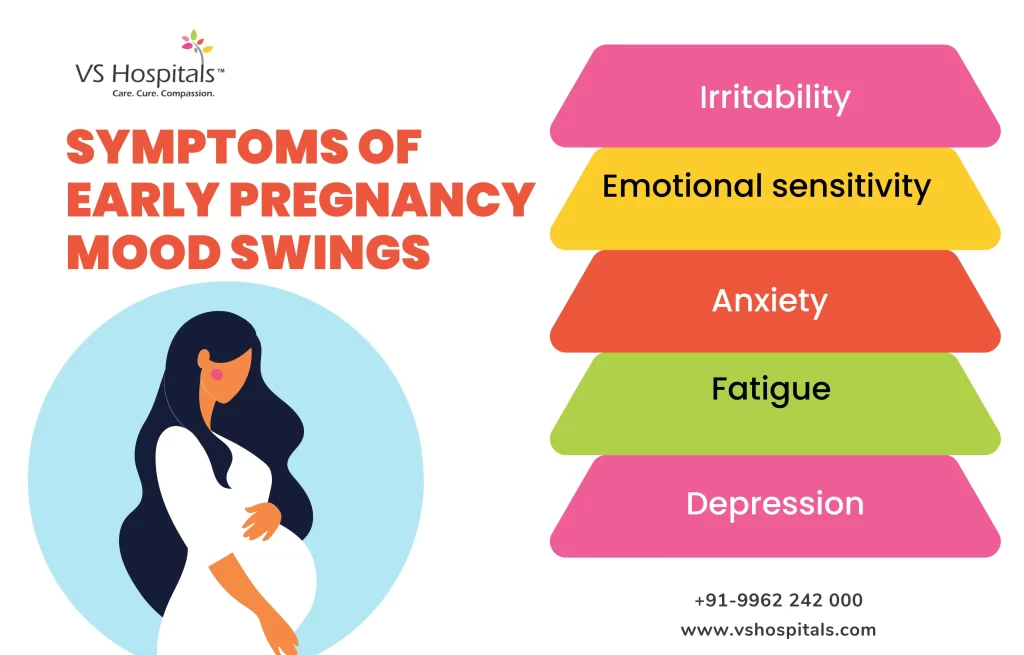
Mood Swings in Early Pregnancy: A Comprehensive Guide
Mood swings are a common and often distressing symptom of early pregnancy. They can range from mild irritability to severe emotional distress, and can significantly impact a woman’s daily life. Understanding the causes, symptoms, and management strategies for mood swings during this time can help women cope effectively and maintain their well-being.
Causes of Mood Swings in Early Pregnancy
The hormonal changes that occur during pregnancy play a significant role in mood swings.
- Increased Progesterone: Progesterone levels rise rapidly in early pregnancy, which can have a calming effect on the brain. However, it can also lead to fatigue, irritability, and difficulty concentrating.
- Increased Estrogen: Estrogen levels also increase during pregnancy, which can contribute to mood swings by affecting neurotransmitters in the brain.
- Human Chorionic Gonadotropin (hCG): hCG is a hormone produced by the placenta that can cause nausea, vomiting, and mood changes.
- Other Factors: Physical discomfort, such as fatigue, breast tenderness, and morning sickness, can also contribute to mood swings.
Symptoms of Mood Swings in Early Pregnancy
Mood swings in early pregnancy can manifest in various ways:
- Irritability: Increased sensitivity to minor annoyances and a tendency to react with anger or frustration.
- Sadness: Feelings of low mood, tearfulness, and hopelessness.
- Anxiety: Excessive worry, nervousness, and difficulty relaxing.
- Moodiness: Rapid and unpredictable changes in mood, from feeling happy to sad or angry.
- Emotional Lability: Difficulty controlling emotions, leading to sudden outbursts of crying or laughter.
- Insomnia: Difficulty falling or staying asleep due to racing thoughts or anxiety.
Impact of Mood Swings on Daily Life
Mood swings can significantly impact a woman’s daily life during early pregnancy:
- Interpersonal Relationships: Irritability and moodiness can strain relationships with family, friends, and coworkers.
- Work Performance: Difficulty concentrating and emotional distress can affect job performance and productivity.
- Social Activities: Mood swings can make it difficult to engage in social activities and enjoy time with others.
- Self-Esteem: Persistent mood changes can lead to feelings of inadequacy and low self-worth.
Management Strategies for Mood Swings in Early Pregnancy
While mood swings are a common part of early pregnancy, there are several strategies that can help women manage their symptoms:
- Lifestyle Modifications:
- Get enough sleep: Aim for 7-9 hours of quality sleep each night.
- Exercise regularly: Engage in moderate-intensity exercise for at least 30 minutes most days of the week.
- Eat a healthy diet: Focus on consuming fruits, vegetables, whole grains, and lean protein.
- Limit caffeine and alcohol: These substances can worsen mood swings.
- Stress Management Techniques:
- Practice relaxation techniques: Engage in activities such as yoga, meditation, or deep breathing exercises.
- Seek support: Talk to a trusted friend, family member, or therapist about your feelings.
- Join support groups: Connect with other women experiencing similar challenges.
- Medical Interventions:
- Antidepressants: In severe cases, antidepressants may be prescribed to help regulate mood.
- Hormone therapy: If hormonal imbalances are suspected, hormone therapy may be recommended.
- Psychotherapy: Cognitive-behavioral therapy (CBT) can help women develop coping mechanisms and manage their emotions.
When to Seek Professional Help
Most mood swings in early pregnancy are mild and manageable. However, it is important to seek professional help if:
- Mood swings are severe and persistent.
- Mood swings interfere with daily activities and relationships.
- You experience thoughts of harming yourself or others.
- You have a history of mental health conditions.
Conclusion
Mood swings in early pregnancy are a common and often distressing symptom. Understanding the causes, symptoms, and management strategies can help women cope effectively and maintain their well-being during this time. By implementing lifestyle modifications, practicing stress management techniques, and seeking professional help when necessary, women can navigate the emotional challenges of early pregnancy and enjoy a healthy and fulfilling experience.